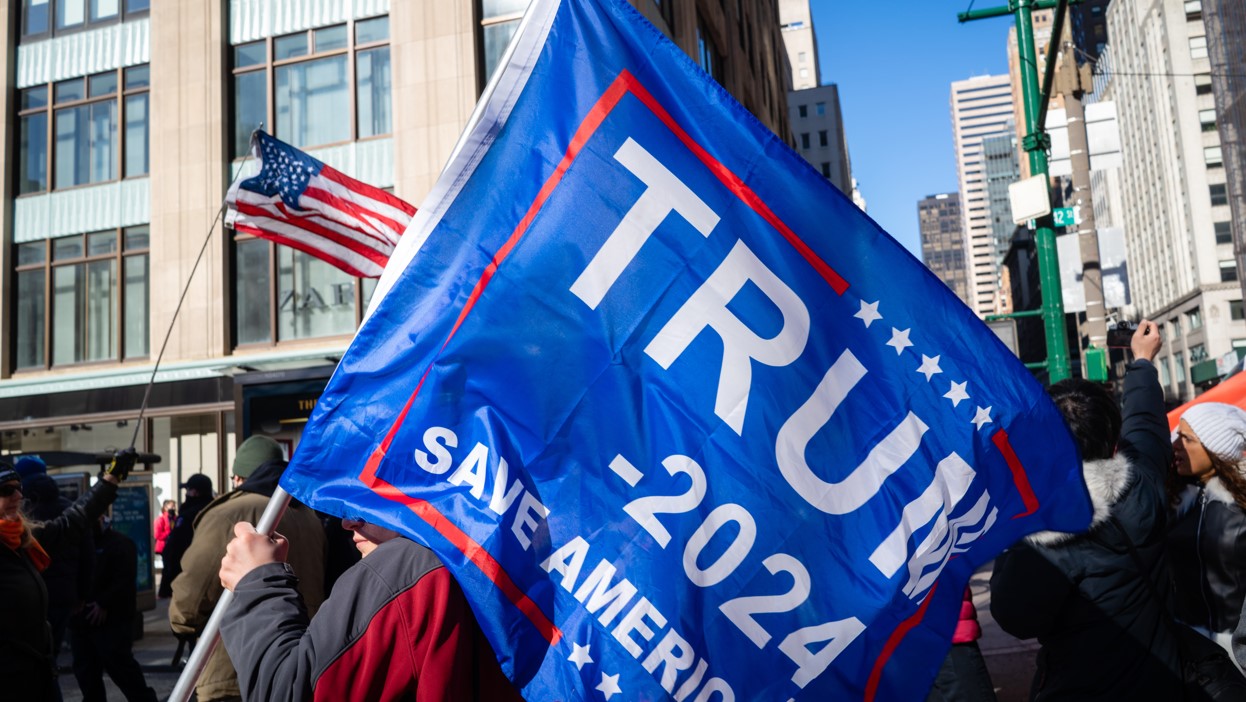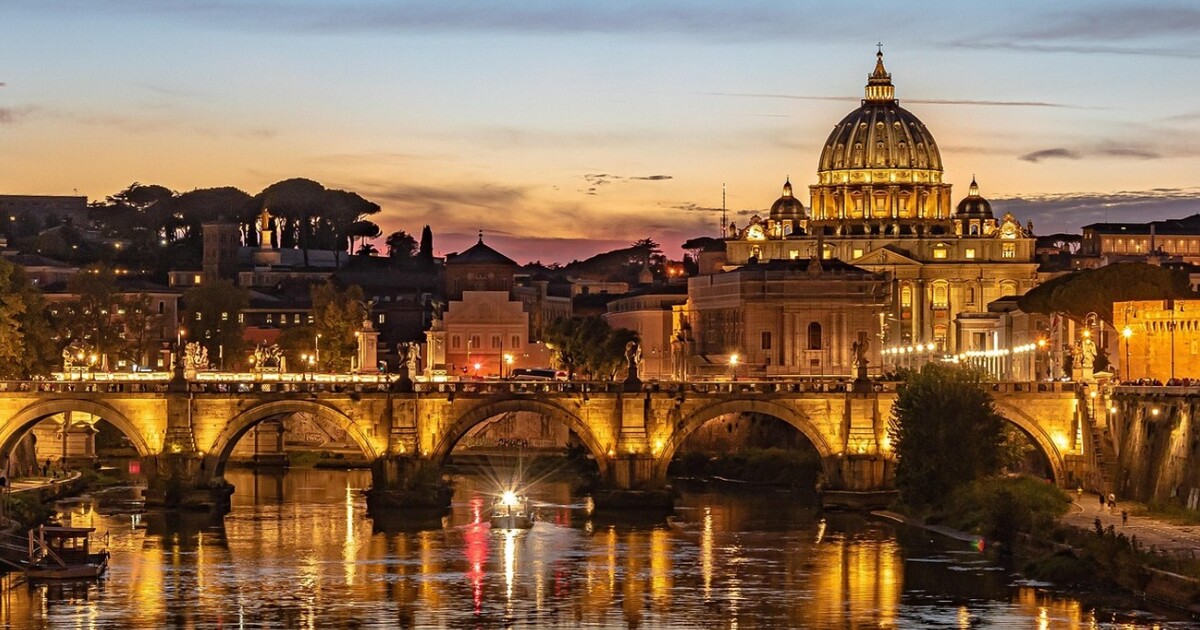Trump’s Threat to Freedom and Democracy
The Trump movement is anything but a freakish aberration in U.S. history, despite liberals’ continuing astonishment about it.
January 20, 2025

A Strategic Assessment Memo (SAM) from the Global Ideas Center
You may quote from this text, provided you mention the name of the author and reference it as a new Strategic Assessment Memo (SAM) published by the Global Ideas Center in Berlin on The Globalist.
Never mind that Donald Trump won re-election as U.S. president with a thin majority of only 1.5 percentage points in the popular vote – 49.9% versus 48.3%.
The 47th President of the United States has established himself as a uniquely talented — and successful — demagogue in U.S. political history.
He is able to connect with voters, promising omnipotence to respond to all of their whims.
The ethno-religious core of the Trump movement
At its core, the Trump movement is based on an ethno-religious definition of the United States of America — namely as a white, protestant nation.
Hence, Trump appeals directly to this base when he says that immigrants are “poisoning the blood of our country.”
Lest we forget, the ethno-religious core of the Trump movement runs much deeper than merely being harshly opposed to all immigrants of today.
Remember birtherism?
The ostracization movement began in 2011, when Trump ran for president for the first time. Before he withdrew, he had been leading the polls with a campaign based on one plank — namely “birtherism.”
Without any evidence, he claimed that America’s first black president Barack Obama was not born in the United States and was not really an American.
This claim obviously appealed to white, protestant Americans who were upset that a black American, of African origin, should become their president.
Ever since, Trump’s popularity among white protestant Americans has been rising — even while this group’s share of the national population is declining.
Only the latest assault on liberalism
In a historical context, the rise of the Trump movement represents only the latest — even though particularly corrosive — assault on the “liberalism” embodied in the U.S. Declaration of Independence.
That document famously held that:
“All men are created equal, that they are endowed by their Creator with certain unalienable Rights, that among these are Life, Liberty and the pursuit of Happiness … to secure these rights, Governments are instituted among Men, deriving their just powers from the consent of the governed.”
In a Trump world, supported by proponents of a white protestant American nation, a vast array of groups — African Americans, migrants, LGBTQ, Muslims and more — can no longer expect their freedoms to be respected.
The great paradoxes of the American republic
But this is not new. One of the great paradoxes of the American republic from the very beginning was the coexistence of the liberalism of the Declaration of Independence with the tragedy of human slavery.
It was hoped that over time the liberal principles would gradually deepen and broaden in American society. But this did not happen.
Despite losing the Civil War, Southerners did not change their views. Indeed, the Ku Klux Klan, an American white supremacist, far-right terrorist organization and hate group, was formed in the wake of the Civil War.
Was the first half of the 20th century merely a blip?
More hopefully, the first half of the 20th century saw an explosion of liberalism due to several factors.
First, enormous immigration from the late 19th century led to these new people demanding their rights. Second, the Great Depression wiped out conservative republicanism as an ideology, for a while. Third, the Second World War and Nazism discredited the racism that was dominant in the United States in the 1920s. Fourth, the contribution of women and racial minorities to the war effort broke down barriers.
Liberalism is never triumphant
However, liberalism is never triumphant. It can always be challenged by those harboring anti-liberal beliefs, such as those who prefer to see the United States as a fundamentally white protestant nation.
And no doubt, liberals themselves could have done more to support liberalism such as improving the lives of Americans in the lower half of the U.S. income distribution — a deficiency that was skillfully exploited by Trump.
In addition, the U.S. liberal left’s turn to identity politics was counterproductive. It played into the hands of anti-liberal forces in the Republican Party. Overall, since the late 1960s, the United States has seen liberalism slide backwards.
The Trump factor and status anxiety
From a deeper perspective, a key factor for the remarkable success of Trump’s demagoguery could be “status anxiety.”
After all, many white protestants — who were used to a dominant stature in U.S. society — must adjust to a new reality where other societal groups are raising themselves up, thanks to the liberal principles.
Given the rising sense of socio-economic disempowerment, huge resentments built up among such white protestant groups. They see Trump as a powerful conduit to protect their privileges and restrict the rights and freedoms of minority groups.
The Trump movement is no freakish aberration
In sum, when viewed from an historical perspective, the Trump movement is no freakish aberration, despite liberals’ astonishment about the Trump phenomenon.
The political struggle between liberal and anti-liberal forces dates back to the founding of the nation. Those who favor the liberal principles in the Declaration of Independence have frequently faced opposition of one kind or another.
There have always been those harboring anti-liberal beliefs preferring to see the United States America as a fundamentally white protestant nation.
A rebellion against the changing nature of society
The re-election of Trump may pose the greatest challenge to American liberalism since the Civil War.
Trump and his movement are clearly in rebellion against the changing nature of a society where people who are not white protestants are playing a more prominent role.
Disturbingly, Trump is a “wrecker” of the current system which has provided the United States and much of the world with improving prosperity and peace for over 70 years. He is not the creator of anything, nor a builder, nor a thinker.
Is there a solution to the rise of anti-liberalism?
Options include improved civil education and greater political activism. However, these options have been advocated for a long time.
And indeed, many liberals in the United States thought that identity politics was the way to go — a strategy that has now understandably exploded in their faces.
More modest — and effective — strategies such as ensuring civics are taught in all U.S. schools would have likely been more effective.
But then again, if the analysis of the inexorable demographic decline of the white protestant share of the U.S. population is correct — and, given the iron laws of demographics — there cannot be any doubt about that this group’s demographic decline could ultimately play a role.
However, at the moment it is very hard to chart a promising path forward in that direction. Which is why the current situation looks bleak.
Takeaways
Given the rising sense of socio-economic disempowerment, white protestant groups see Trump as a powerful conduit to protect their privileges and restrict the rights and freedoms of minority groups.
From an historical perspective, the Trump movement is no freakish aberration, despite liberals’ astonishment about the Trump phenomenon.
Disturbingly, Trump is a "wrecker" of the current system which has provided the United States and much of the world with improving prosperity and peace for over 70 years. He is not the creator of anything.
It was hoped that over time the liberal principles of the U.S. Declaration of Independence would gradually deepen and broaden in American society. But as the Trump movement shows, this did not happen.
The first half of the 20th century saw an explosion of liberalism in the United States. It was due to several factors, including immigration and the contribution of women and racial minorities to the war effort.
Liberalism is never triumphant. It can always be challenged by those harboring anti-liberal beliefs, such as those in the United States who prefer to see their country as a fundamentally white protestant nation.
U.S. liberals themselves could have done more to support liberalism such as improving the lives of Americans in the lower half of the U.S. income distribution – a deficiency that was skillfully exploited by Trump.
The U.S. liberal left’s turn to identity politics was counterproductive. It played into the hands of anti-liberal forces in the Republican Party.
A Strategic Assessment Memo (SAM) from the Global Ideas Center
You may quote from this text, provided you mention the name of the author and reference it as a new Strategic Assessment Memo (SAM) published by the Global Ideas Center in Berlin on The Globalist.
Read previous

Global Diary
Rome: City of the Sinless?
January 19, 2025

